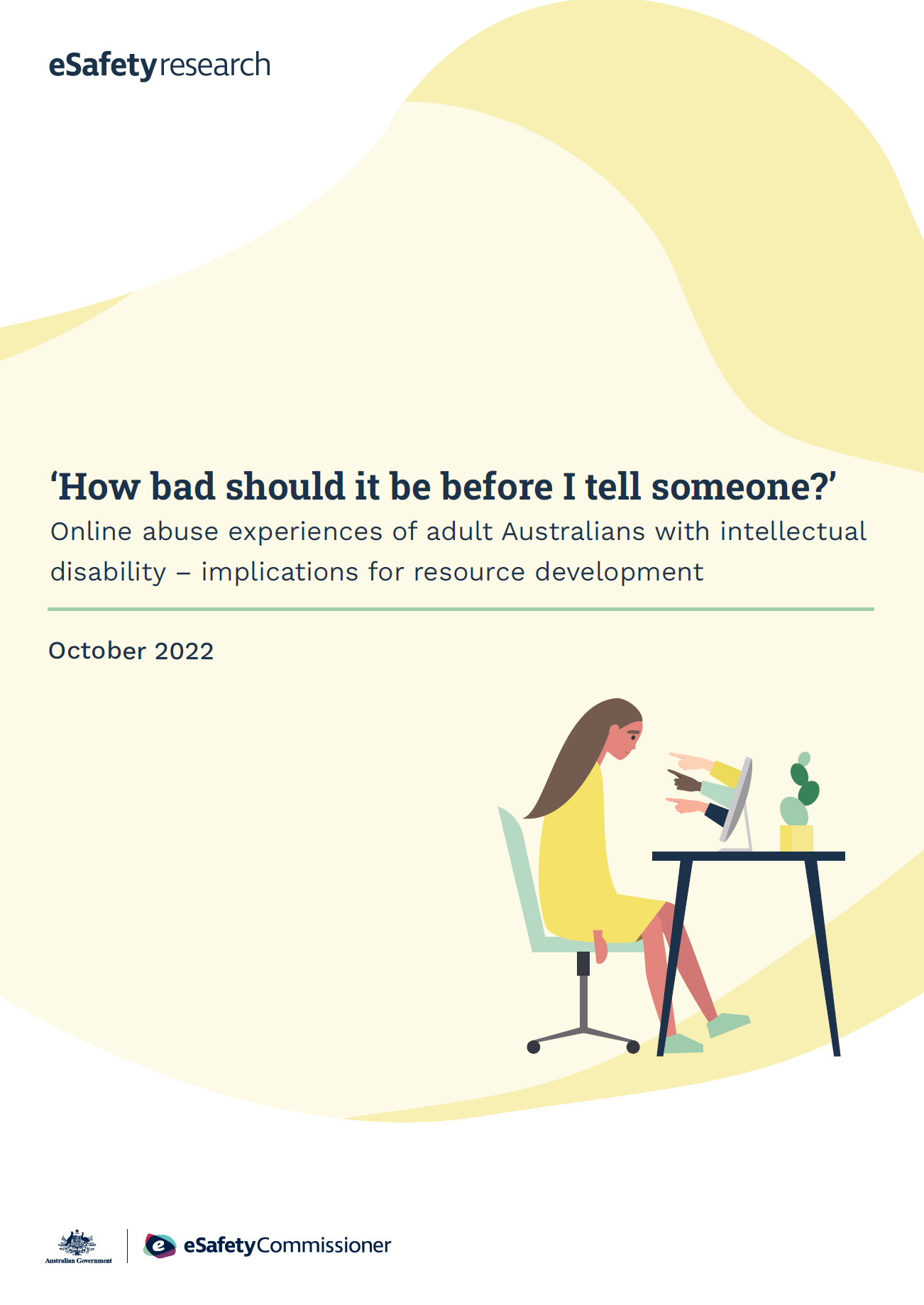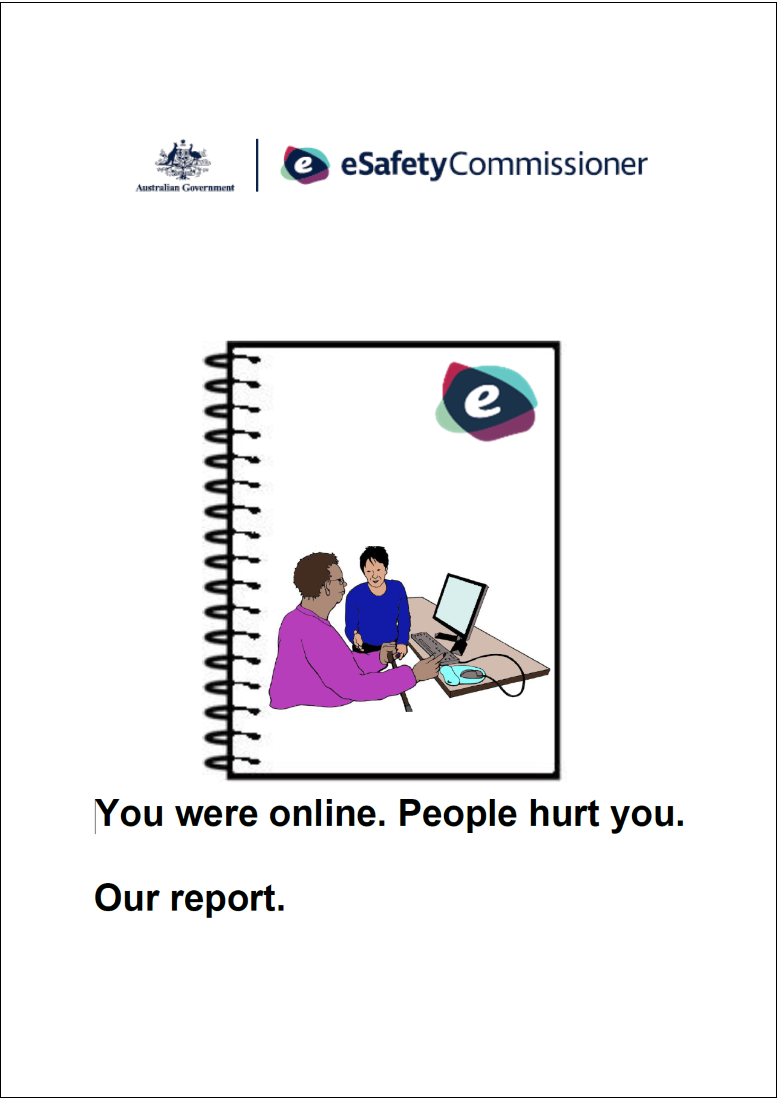How adults with intellectual disability experience online abuse
Online safety resources need to better inform carers and service providers to recognise and respond to the experiences of people with intellectual disability.
This research explores how people with intellectual disability use the internet and how they experience and deal with online abuse. It also identifies gaps in the support and resources that are currently available for people with intellectual disability, their carers and service providers.
Interviews and focus groups with adults with intellectual disability, their carers and service providers were conducted in stages between May and December 2021.
The findings will be used to inform relevant online programs and resources provided by eSafety.
Summary of key findings
- Experiences of online abuse are widespread among people with intellectual disability. Abusive behaviour includes online bullying, trolling, doxing and sexual extortion.
- Many adults with intellectual disability don’t recognise online abuse while it is happening and are unlikely to seek or use resources to improve their online safety.
- Online interactions are riskier for people with intellectual disability because of their reduced impulse control and varied ability to understand and assess online communication, including the tone of written messages.
- Resources for people with intellectual disability, their carers and service providers need to be in Easy Read format and include real-life online safety examples. They should also present information using video to encourage better engagement.


